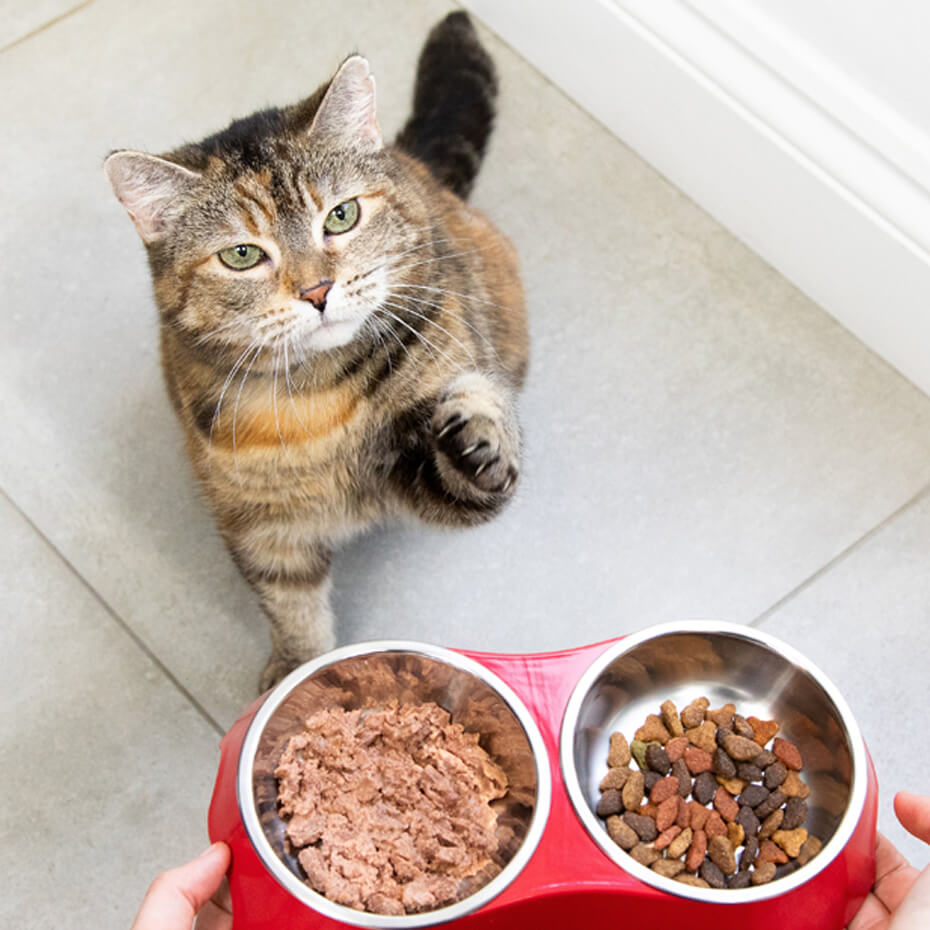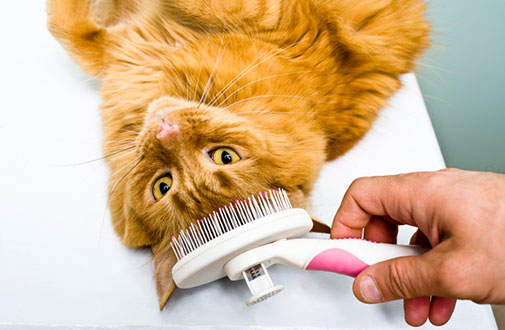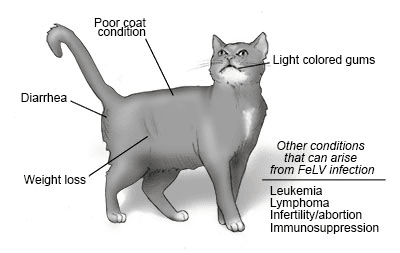When deciding on a small cat breed, consider your lifestyle, living situation, and the breed’s personality traits. Some small breeds are highly active and playful, while others are more laid-back and cuddly. Researching and meeting different breeds can help you find the perfect match for your home. Factors such as grooming needs, potential health issues, and compatibility with other pets or children should also influence your decision.
Creating a Safe Home Environment
Small cats are more agile and curious, which means your home should be a safe playground for them. Here are a few tips to create a cat-friendly environment:
- Secure fragile items: Small cats can jump and climb onto high surfaces, so ensure breakables are out of reach.
- Hide electrical cords: Cats might chew on them, posing a hazard. Use cord protectors to keep them safe.
- Provide vertical spaces: Cat trees, shelves, and window perches can satisfy their climbing instincts.
- Toxic plants and substances: Keep harmful plants and chemicals out of their reach to prevent accidental poisoning.

Nutrition and Feeding Guidelines
Small cat breeds need a balanced diet tailored to their size and metabolism. Here are key points to consider:
- High-quality protein: Cats are obligate carnivores, so their diet should primarily consist of meat.
- Portion control: Due to their small size, overfeeding can lead to obesity, which is detrimental to their health.
- Hydration: Ensure fresh water is always available. Wet food can also help with hydration.
- Special dietary needs: Some breeds may require specific diets due to genetic conditions. Consult your vet for personalized advice.

Grooming Tips for Small Cats
Grooming is essential to keep your small cat healthy and comfortable. Here are some tips:
- Brushing: Regular brushing helps remove loose fur and reduces hairballs. The frequency depends on the cat’s coat type.
- Bathing: Most cats groom themselves, but occasional baths can help, especially for breeds with less fur like the Cornish Rex.
- Nail trimming: Keep their nails trimmed to prevent overgrowth and reduce the risk of scratches.
- Ear and eye care: Regularly check and clean their ears and eyes to prevent infections.

Exercise and Playtime
Despite their small size, these cats need plenty of exercise to stay healthy and happy. Here’s how you can keep them active:
- Interactive toys: Toys that mimic prey can stimulate their hunting instincts.
- Play sessions: Dedicate time each day to play with your cat, using toys like laser pointers or feather wands.
- Climbing structures: Cat trees and shelves can provide exercise and entertainment.
Health Care and Regular Check-ups
Routine veterinary care is crucial for small cat breeds. Regular check-ups can catch potential health issues early. Here’s what to keep in mind:
- Annual exams: Schedule yearly vet visits for a thorough health check.
- Vaccinations: Keep up with vaccinations to protect against common diseases.
- Parasite prevention: Use flea, tick, and worm preventatives as recommended by your vet.
- Dental care: Regular dental check-ups and cleanings are essential for preventing dental diseases.

Socialization and Behavior
Socialization is key to a well-adjusted cat. Small cat breeds can be very social, but it’s important to introduce them to new experiences gradually:
- Early socialization: Kittens should be exposed to various people, sounds, and environments from a young age.
- Positive reinforcement: Use treats and praise to encourage desired behaviors.
- Understanding body language: Learn to read your cat’s signals to avoid stress and build a strong bond.
Litter Box Training
Litter box training is usually straightforward, but consistency is key. Here’s how to ensure success:
- Choosing the right box: Make sure the litter box is easily accessible and appropriately sized for your small cat.
- Litter choice: Some cats are particular about the type of litter. Experiment to find one they prefer.
- Cleanliness: Keep the litter box clean to encourage regular use.
- Location: Place the litter box in a quiet, low-traffic area to give your cat privacy.
Traveling with Your Small Cat
Traveling with a small cat can be a challenge, but preparation can make it easier:
- Carrier training: Get your cat used to the carrier by leaving it out and putting treats inside.
- Comfort items: Bring familiar items like a blanket or toy to reduce anxiety.
- Hydration and breaks: Ensure your cat stays hydrated and take breaks during long trips.
- Health certificates: Check if you need a health certificate from your vet, especially for air travel.

Understanding Small Cat Breeds’ Lifespan
Small cat breeds often have long lifespans, sometimes living into their late teens or early twenties. To help your cat live a long, healthy life:
- Regular vet visits: Keep up with health check-ups and vaccinations.
- Proper nutrition: Feed a balanced diet tailored to their needs.
- Exercise and mental stimulation: Keep them physically and mentally active to prevent health issues.
Recognizing and Managing Stress
Small cats can be sensitive to changes in their environment. Recognizing and managing stress is crucial:
- Routine: Maintain a consistent daily routine to provide stability.
- Safe spaces: Create hiding spots where your cat can retreat and feel secure.
- Gradual changes: Introduce new changes slowly to avoid overwhelming your cat.
Common Health Issues in Small Cats
Understanding common health issues in small cat breeds can help you manage them effectively:
- Obesity: Monitor their weight and adjust their diet and exercise accordingly.
- Dental issues: Regular dental care can prevent tooth decay and gum disease.
- Genetic conditions: Be aware of breed-specific genetic issues and consult your vet for management strategies.
The Importance of Dental Care
Dental health is often overlooked but crucial for small cat breeds. Here’s how to keep their teeth healthy:
- Regular brushing: Brush your cat’s teeth regularly with cat-specific toothpaste.
- Dental treats: Use dental chews to help reduce plaque buildup.
- Vet check-ups: Schedule regular dental exams and cleanings.
Conclusion
Caring for small cat breeds involves a mix of proper nutrition, regular health care, and understanding their unique needs. By providing a safe, engaging environment and staying attentive to their health, you can ensure your small cat lives a long, happy life. Remember, the key to a thriving pet is love, attention, and a commitment to their well-being.
FAQs
1. What are the best small cat breeds for families? Small cat breeds like the Devon Rex and Munchkin are great for families due to their playful and affectionate nature.
2. How often should I groom my small cat? The grooming frequency depends on the breed. For example, the Cornish Rex may require less grooming compared to a long-haired breed.
3. Can small cat breeds live with other pets? Yes, many small cat breeds can live harmoniously with other pets, especially if introduced properly and socialized from a young age.
4. What should I feed my small cat breed? Feed them a balanced diet rich in high-quality protein, with controlled portions to prevent obesity. Consult your vet for specific dietary recommendations.
5. How can I help my small cat breed stay active? Engage them with interactive toys, regular play sessions, and provide climbing structures like cat trees to keep them physically and mentally stimulated.





















